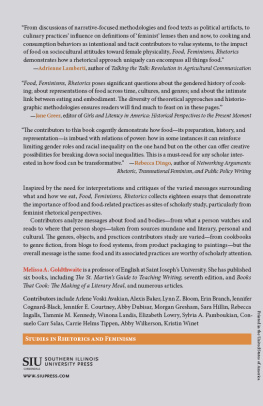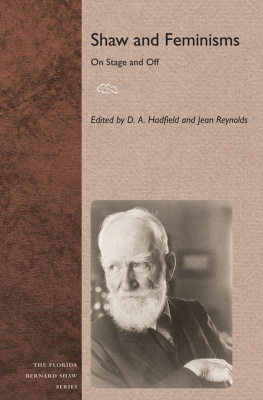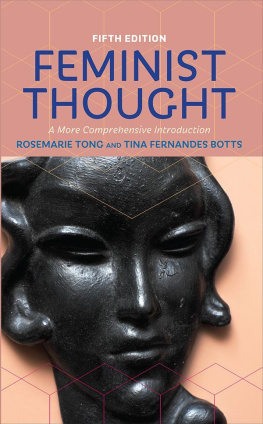Recovering Women
Polemics
Michael Calvin McGee and Barbara Biesecker,
University of Iowa
John M. Sloop,
Vanderbilt University
Recovering Women: Feminisms and the Representation of Addiction,
Melissa Pearl Friedling
Literary Integrity and Political Action: The Public Argument of James T. Farrell
Kathleen Farrell
Malthusian Worlds: US Leadership and the Governing of the Population Crisis,
Ronald Walter Greene
The Better Angels of Capitalism: Rhetoric, Narrative, and Moral Identity Among Men of the American Upper Class,
Andrew Herman
The Rise of Rhetoric and Its Intersections with Contemporary Critical Thought,
Omar Swartz
Without Apology: Andrea Dworkins Art and Politics,
Cindy Jenefsky
Rhetoric and Marxism,
James Arnt Aune
Forthcoming
Legal Memories and Amnesias in Americas Rhetorical Culture,
Marouf Hasian Jr.
Information of Technology,
David Gunkel
First published 2000 by Westview Press
Published 2019 by Routledge
52 Vanderbilt Avenue, New York, NY 10017
2 Park Square, Milton Park, Abingdon, Oxon OX14 4RN
Routledge is an imprint of the Taylor & Francis Group, an informa business
Copyright 2000 by Taylor & Francis
All rights reserved. No part of this book may be reprinted or reproduced or utilised in any form or by any electronic, mechanical, or other means, now known or hereafter invented, including photocopying and recording, or in any information storage or retrieval system, without permission in writing from the publishers.
Notice:
Product or corporate names may be trademarks or registered trademarks, and are used only for identification and explanation without intent to infringe.
Library of Congress Cataloging-in-Publication Data
Friedling, Melissa Pearl.
Recovering women: feminisms and the representation of addiction / Melissa Pearl
Friedling.
p. cm.(Polemics series)
Includes bibliographical references and index.
1. WomenDrug abuseUnited States. 2. Narcotic addictsRehabilitationUnited
States. 3. Women in popular cultureUnited States. 4. FeminismUnited States. I. Title.
II. Series.
HV5824.W6 F75 2000
362.29'18'0820973dc21
99-052776
ISBN 13: 978-0-367-28522-7 (hbk)
This book is dedicated to the memories of Robert Branham, my professor at Bates College, whose teaching, scholarship, and humanity continue to inspire and sustain me, and to my grandma, Dorothy Grosser, whose beauty, spirit, and love are with me all the time. I would also like to thank Leighton Pierce, Franklin Miller, Michael McGee, Lauren Rabinowitz, Doris Witt, Camille Seaman, and Bruce Gronbeck at the University of Iowa for their wisdom, guidance, generosity, and support. I am especially grateful to Barbara Biesecker, my teacher, colleague, and friend, who offered perceptive comments on the manuscript and unfailing encouragement. My appreciation also goes out to the University of Iowa Graduate College, which assisted me with the award of a Seashore Dissertation Year Fellowship. At Syracuse University, I am indebted to Jane Marsching, Doug Dubois, Mark Durant, Jude Lewis, John Orentlicher, Loren Schwerd, and Owen Shapiro for their art, friendship, and constructive advice. Additional thanks go to John Sloop, and Catherine Murphy, Lisa Wigutoff, and Myia Williams at Westview Press.
* * *
I also owe endless gratitude to friends and family whose loving support made the writing of this book possible. Thanks, first of all, to my parents, Carol and Steven Friedling, and my sister, Lily Friedling, for their love. Further thanks also go to my friends Catherine Eng, Erica Goldsmith, Liz Davis, Sophie Jones, Ragga Skuladottir, Christopher Deegan, Andrea Lawlor, Nicky Koschman, and Cathy Hailey for their constancy, camaraderie, and patience over the years.
was previously published in slightly altered form under the title Feminisms and the Jewish Mother Syndrome: Identity, Autobiography, and the Rhetoric of Addiction, in Discourse 19.1 (Fall 1996): 105130.
Melissa Pearl Friedling
1
Addiction, Rhetoric, and Feminism: The Ballad of (Hetero) Sexual Dependency
The 1982 book, Edie: An American Biography , tells the story of the short, drug-addled, celebrity life of Edie Sedgwick. She moved back to California, was in and out of mental hospitals, underwent intensive electroshock treatments, and got breast implants (in 1971!) before resuming her role in the extended production of Ciao! Manhattan Edies farewell performance. She died of a barbiturate overdose in 1971 at the age of twenty-eight.
The point of this summary is to offer a working sketch of the addicted womannotably young, white, and economically privilegedwho crops up again and again everywhere in American cultural productions as she has grown into an object of mass fascination. Not only is she virtually ubiquitous in popular culture, she is also prolifically represented in the more ratified domain of contemporary art. Moreover, her image has been accompanied by copious feminist discussion about the pathological female body. This intersection of popular/fine art interests in female addiction with feminist concerns led to the question I will centrally address in this book: How can a feminist critic read these representations of addicted women who appear in various cultural sites? For numerous reasons that are discussed below, the addicted woman, who is regularly treated in a whole range of discourses, remains a troubling figure in a contemporary feminist struggle. The rest of this book investigates why her unsettling image emerges and persists in diverse cultural productions and why it may be so compelling for feminist debate. The lasting impression of Edie Sedgwick that I invoked at the outset will remain a touchstone for my interests in such questions and my attempts to reconcile the consistent and enduring representations of addicted women with feminist critique.
Overall, Recovering Women is about feminism and its status in intellectual discourse and movement politics. As I hinted above, I have framed this discussion of feminism with the question of addiction. Perhaps addiction seems like an odd tangent for a project that seeks to clarify the status of feminism, one of the most defining intellectual and cultural features of the latter half of the twentieth century. But addiction is not tangential to the question of feminism. What I argue in this book is that feminism repeatedly emerges as a contemporary question through the representations of addiction. In other words, addiction has become a rhetorical exigence for the question of feminism; not the only one and not an originary one, but one that has prompted feminism to address the binary oppositions that representations of addiction are bound to disturb. The most notable opposition is the structuring division between mind and body. This division has guided the movement of feminism over the past three decades to redress the ways in which women have been excluded, misrepresented, or both by a dominant tradition that distinguishes a more embodied femininity from a more reasoned masculinity. Feminists have challenged patriarchal rationalizations of male domination that have served to oppress women by conceiving of women as more corporeal than men and hence objects rather than agents of symbolization, sociality, and culture. However, the representation of addiction potentially threatens dominant binary logics of mind/body dualism since addiction is simultaneously understood to be both a physiological (disease) and a cognitive (question of will) phenomena. This disruption of binary logic also jeopardizes the guarantee of addictions paired term, voluntarism, and in turn disrupts the dependency/autonomy, passive/active, sickness/health, queer/normal, female/male, black/white dyads central to dominant logics that affirm the ascendancy of the second term. Hence, the structural crisis indicated by representations of addiction are central to feminist concerns. Simultaneously, I will show, feminism is itself called into question by the same crisis.







